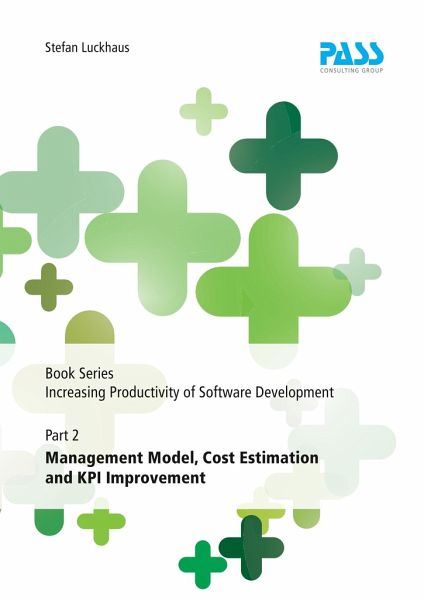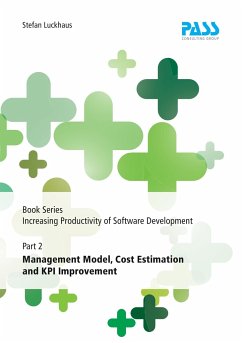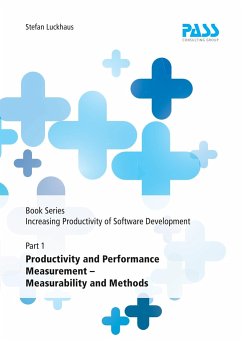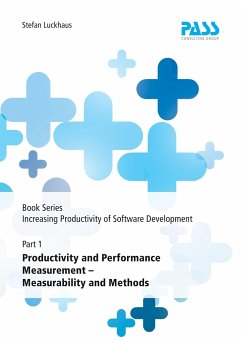
Book Series Increasing Productivity of Software Development, Part 2: Management Model, Cost Estimation and KPI Improvement
Versandkostenfrei!
Versandfertig in 6-10 Tagen
16,99 €
inkl. MwSt.
Weitere Ausgaben:

PAYBACK Punkte
0 °P sammeln!
Book Series: "Increasing Productivity of Software Development":In software development, productivity is a measure of how much functionality can be developed in a given time and in compliance with specified quality criteria. If an increase in productivity succeeds, this increases the scope of the developed functionality and reduces the required time. Both features are desirable because software is the stuff innovations are made of. IT haschanged almost all areas of life thanks to fundamental innovations. Our future will be dominated by virtualization and smart helpers, that is, devices equipped...
Book Series: "Increasing Productivity of Software Development":
In software development, productivity is a measure of how much functionality can be developed in a given time and in compliance with specified quality criteria. If an increase in productivity succeeds, this increases the scope of the developed functionality and reduces the required time. Both features are desirable because software is the stuff innovations are made of. IT has
changed almost all areas of life thanks to fundamental innovations. Our future will be dominated by virtualization and smart helpers, that is, devices equipped with intelligence. This makes software development a key competence. Today, for companies that develop software, productivity as well as time and quality, are critical success factors.
By introducing standards and automation, productivity in software development has been demonstrably increased by a factor of 20. The reutilization of functional and technical components has already enabled measurements of a factor of 100. Such performance differences are only reproducible by measurements and the consistent use of measurement results within a management model
designed for continuous optimization.
Part 2:
Management Model, Cost Estimation and KPI Improvement:
This book describes a model based on three key performance indicators:
productivity (measured using the measurement methods described in the first book), cost and quality. It explains their cyclical collection, analytical evaluation and indicators that lead to improvement measures in important areas of influence. In order to be able to assess the benefits of the measures in advance, it provides empirical values as well as a method for calculating their effectiveness. The model described above serves as a navigation tool for the management, enabling them to constantly view both direction and speed of its key performance indicators.
In software development, productivity is a measure of how much functionality can be developed in a given time and in compliance with specified quality criteria. If an increase in productivity succeeds, this increases the scope of the developed functionality and reduces the required time. Both features are desirable because software is the stuff innovations are made of. IT has
changed almost all areas of life thanks to fundamental innovations. Our future will be dominated by virtualization and smart helpers, that is, devices equipped with intelligence. This makes software development a key competence. Today, for companies that develop software, productivity as well as time and quality, are critical success factors.
By introducing standards and automation, productivity in software development has been demonstrably increased by a factor of 20. The reutilization of functional and technical components has already enabled measurements of a factor of 100. Such performance differences are only reproducible by measurements and the consistent use of measurement results within a management model
designed for continuous optimization.
Part 2:
Management Model, Cost Estimation and KPI Improvement:
This book describes a model based on three key performance indicators:
productivity (measured using the measurement methods described in the first book), cost and quality. It explains their cyclical collection, analytical evaluation and indicators that lead to improvement measures in important areas of influence. In order to be able to assess the benefits of the measures in advance, it provides empirical values as well as a method for calculating their effectiveness. The model described above serves as a navigation tool for the management, enabling them to constantly view both direction and speed of its key performance indicators.













